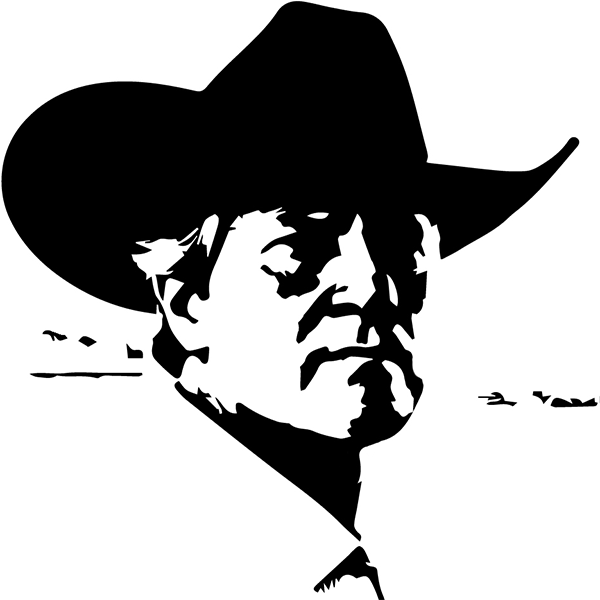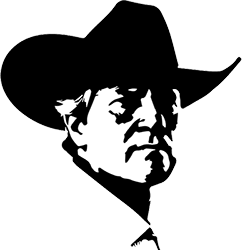A Good Neighbour – In Memory of Douglas John Silvester.
For you, after you die, there is nothing. A void. A blackness.
For the still-living, when you die, you still exist. The memory of who you were lives on. Who you were (a good guy, an ‘A’-hole, a craftsman, an artist) depends on what memories you impressed on the people who knew you.
You can also be remembered by those who didn’t know you if you leave behind accessible media such as art, poems, photos, novels, movies, or, in the case of social media, through your blog, website, X, Instagram, Facebook, or YouTube postings.

However, the oldest social media method for collectively remembering anyone who has “passed” is the obituary—usually presented at the memorial or what we today call a celebration of life and published in the local newspaper. In my grandmother’s era, the older you got, the more obsessive you became about reading the obituaries. When the deceased’s obituary came out, they became the center of gossip – for the day.
For those (wife, husband, son or daughter) close to you (the deceased), the obituary may be the one chance to share their story with the rest of the world. This sounds like “too little too late,” but if you haven’t written an autobiography or kept a blog for the last 10 years, this may be the only chance to set your story straight. What your loved ones write in the obituary will decide the shade of blackness you descend into after you die.
If you don’t write a blog, keep a website, post thousands of pictures or published books and articles, in other words – write your obituary before your time – you will have to count on getting a good obituary to tell your story. You will have to depend on someone else to get their act together. Considering that most of our modern society cannot be bothered to write a coherent tweet or use the spell checker on Facebook, that is risking a lot. There is no second chance here. You die. You get forgotten. Gone. The blackest of black.
My mentor, my godfather, Stan Shilson, died, and his family decided not to publish an obituary or hold a memorial or celebration of life. His daughter didn’t even contact me to break the news, even though she knew Stan and I were very close. They most likely justified their actions by saying, “he wouldn’t have wanted one.” Or “he would have just wanted the immediate family.” You have heard those meaningless excuses a lot recently.
Stan might have uttered those very words, but I also know that he really would have wanted his close friends to remember him and attend his burial. But whether he wanted me to add my “remember-the-time-Stan…” memories of him to his celebration of life is not the point. He is dead and won’t know anyway. The celebration is about those of us still living.
If we can write off our close friends and relatives so quickly when they die, then what is there about our own lives left to cherish? Without that last memorial, celebration of life or obituary, Stan Shilson may have never existed. A WWII veteran who spent his life helping others doesn’t exist except in my memories.

Not having a memorial or celebration of life for your “loved one” is just bad manners, but not having a good obituary is terrible planning. We all know we are going to die. So face it. Prepare your obituary or find someone trustworthy who will do it for you. Don’t rely on your genuinely grief-stricken (or your genuinely lazy lay-about) relatives to cover your life for you. Otherwise, be resigned to disappear. Just try to Google Stan Shilson. Nothing.
Recently, a good neighbor and (after being our shared-fence-neighbor for the past 10 years) friend, Doug Silvester, died of cancer. He was diagnosed a few years before, but with chemo and radiation, they optimistically thought he was going to beat the odds. But when I came home to Canada, after being away for 10 months, he had given up all treatment with the realization that there was no containing the cancer’s spread. He knew he was dying.
We were not close and had little in common, but I admired his way of putting everything in context. He made light of problems and gave everyone a fair shake. His gossip was breezy and nonmalicious, and he wouldn’t say it out loud if he didn’t like someone. He made a face that said, “I am not going to talk about this person.” Keeping your mouth shut might have been his philosophy.

At the same time, having Doug as my neighbour did point out my biggest personal flaw and our most significant difference. He was always around, and I was always away. When my son got the lawn tractor stuck in the ditch, when the truck battery died, when my wife needed someone to remove a dead mouse from the basement (she would phone him and say, Doug, I have a dead body I need you to dispose of), they could always rely on Doug being nearby and willing to lend a hand. When I was home, he was the extra hand in any heavy lifting or difficult job I needed help with. And he never – not once when we were neighbours – asked for a favour in return.
When I got obsessive about getting anything done around the yard and worked too hard or too late, he’d show up at the fence and yell, “It’s happy hour!” I’d grab my wife and a couple of beers, join him and his wife on his backyard deck, and watch the sunset below the treeline as we discussed local people and politics. After the beers ran out, we’d reluctantly get into his homemade “patio” wine, which I believe came straight from a tap installed on the carboy. Doug was handy that way.
When I got home from being away for 10 months, after he had dropped the treatments, Doug made an effort to come to my yard to greet me. As always, he was cheerful and happy to see me. Two weeks later, Doug died with dignity at home in bed. Watching him die quickly and quietly over the next two weeks hit me (and Holly and Logan) like few deaths before him.

For me personally, the impact of Doug’s death was not in the same classification as losing a close family member like my Grandmother, Mother-in-law or my Dad but rather in the non-family class of Stew Wilson, a bush pilot who befriended me when I was 5 years old and who died suddenly in a Norseman crash, or Stan Shilson, a war buddy of my uncle and the voice of compassion and reason during my formative years, who died in his bed after a long and happy life.
These guys, including Doug, represent those few people in our lives who press something into our hearts like a warm handprint impressed on a soft pillow if only to give us a glimpse of the true meaning of friendship, dependability, or compassion.
Doug’s family held a celebration of life and asked his best friends and curling buddies to write and read an obituary. I left the event, which many people later said was a wonderful memorial, feeling like my glass was half empty. I concluded from Doug’s memorial that you haven’t lived if you didn’t fish, golf or curl and get drunk and do something stupid while fishing, golfing or curling. Doug obviously died with a full glass.
Doug was a good curler and golfer and loved to fish. Having a few too many drinks during these activities somehow made those times somewhat more memorable, humane, and identifiable. If we don’t have significant milestones and accomplishments to brag about, we compensate by making light of our life’s foibles.

We can all feel a sense of what it means to be human if we can identify with someone’s failings, and in my town, getting “falling down” drunk during a curling Bonspiel and telling stories about “sleeping it off” in the broom closet between games brings people together just like getting your car stuck in the snow during a blizzard brings out the people willing to shovel and push. Blizzards and getting drunk are inevitable forces of nature that compel you to realize that life is full of pitfalls and we just have to get up again and get on with it – whatever it is we do – and that in the end, we need each other to help us out of the ditch.
Since I don’t curl, golf, fish or get drunk and fall down, there will be nothing for people in my hometown to say at my memorial. Who can identify with what I do – flying into volcanoes in Indonesia, running lawyers, guns and money in West Africa, starting airlines in South Africa and Madagascar, setting up a deep-water helicopter operation in West Africa, flying million-dollar pearl runs in Indonesia, or being the first ever to land a seaplane on a remote island lagoon in Fiji, the Maldives or the Philippines?
That is why Doug was special. He was a team player. He would be your third or join your foursome. He was the dependable guy who would always show up to pull you out of the broom closet or push you out of the ditch – during a bonspiel or blizzard or otherwise – and he did so without being smug or expecting something in return. He made you laugh about your predicament.
He did so because he was aware of his own shortcomings. His foibles were your foibles, and by sharing them, we shared a sense of community. If it wasn’t for people like Doug, there would be no curling bonspiels, golf tournaments, or, ultimately, a community to come home to.
That is where the intolerance of prohibition and religious fanaticism fail. We may be prone to fail, but if we recognize and share a laugh over our human failings, we will be more tolerant of each other. In identifying this, we, the living, will be in a better place. Doug may have gone into the void, but our memories of him are a lesser shade of black because of his family and friends who did something to remember him.
If you Google Douglas John Silvester, you won’t get a blackout.

Douglas John Silvester – Throwing the Last Rock



